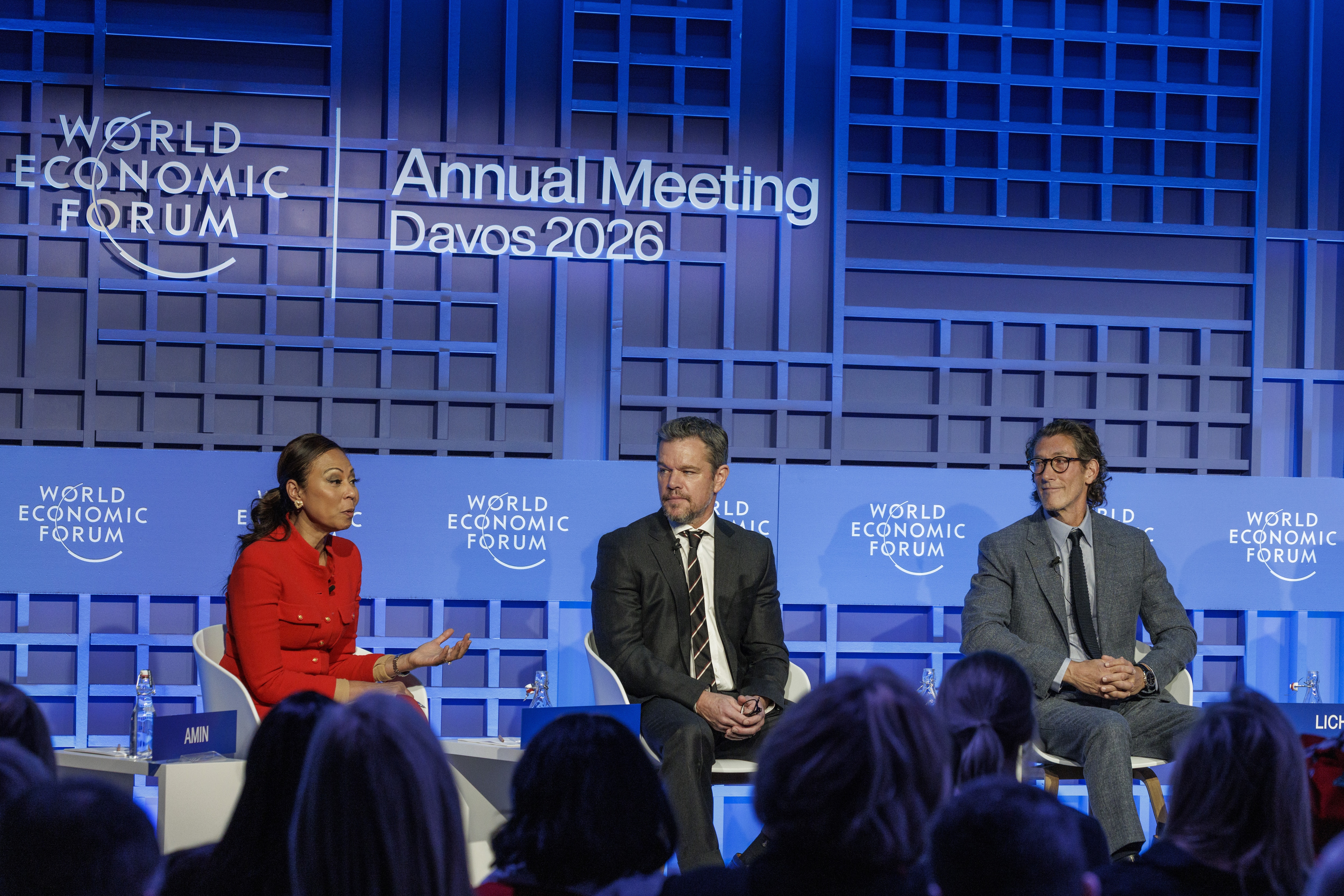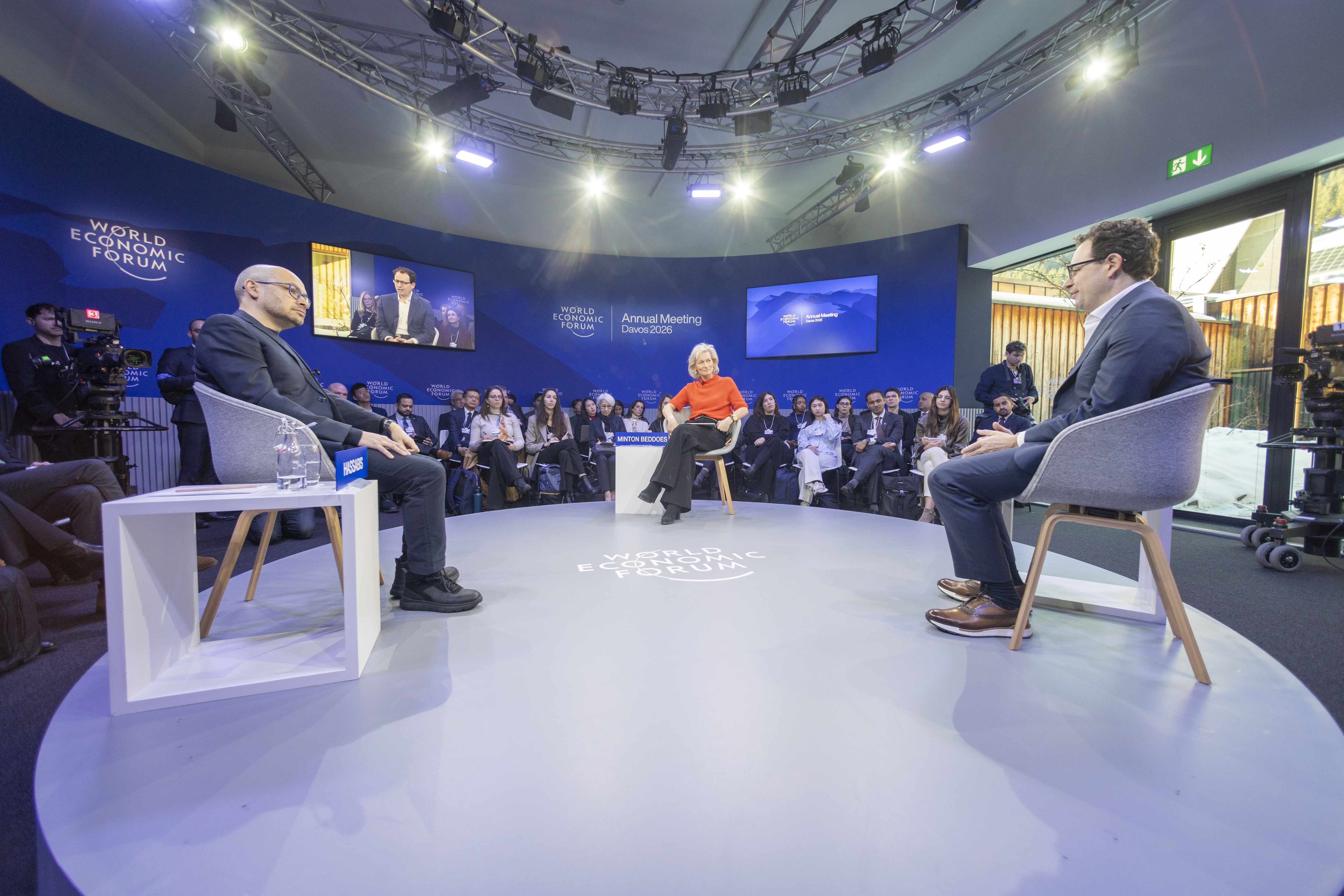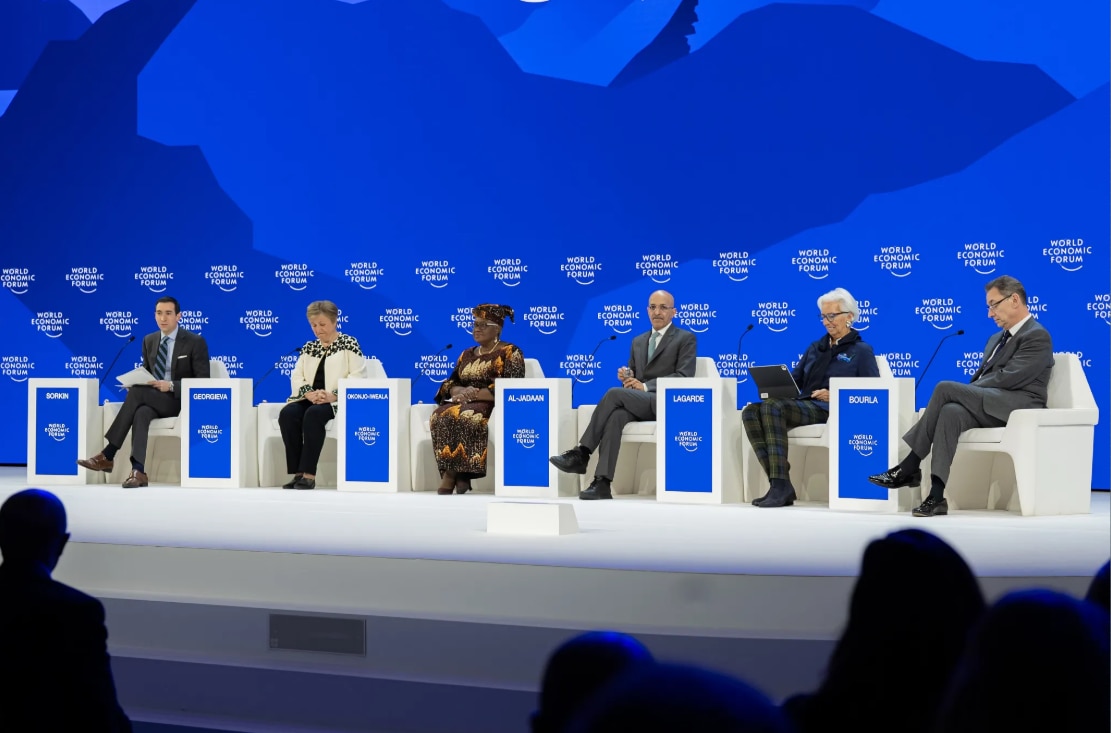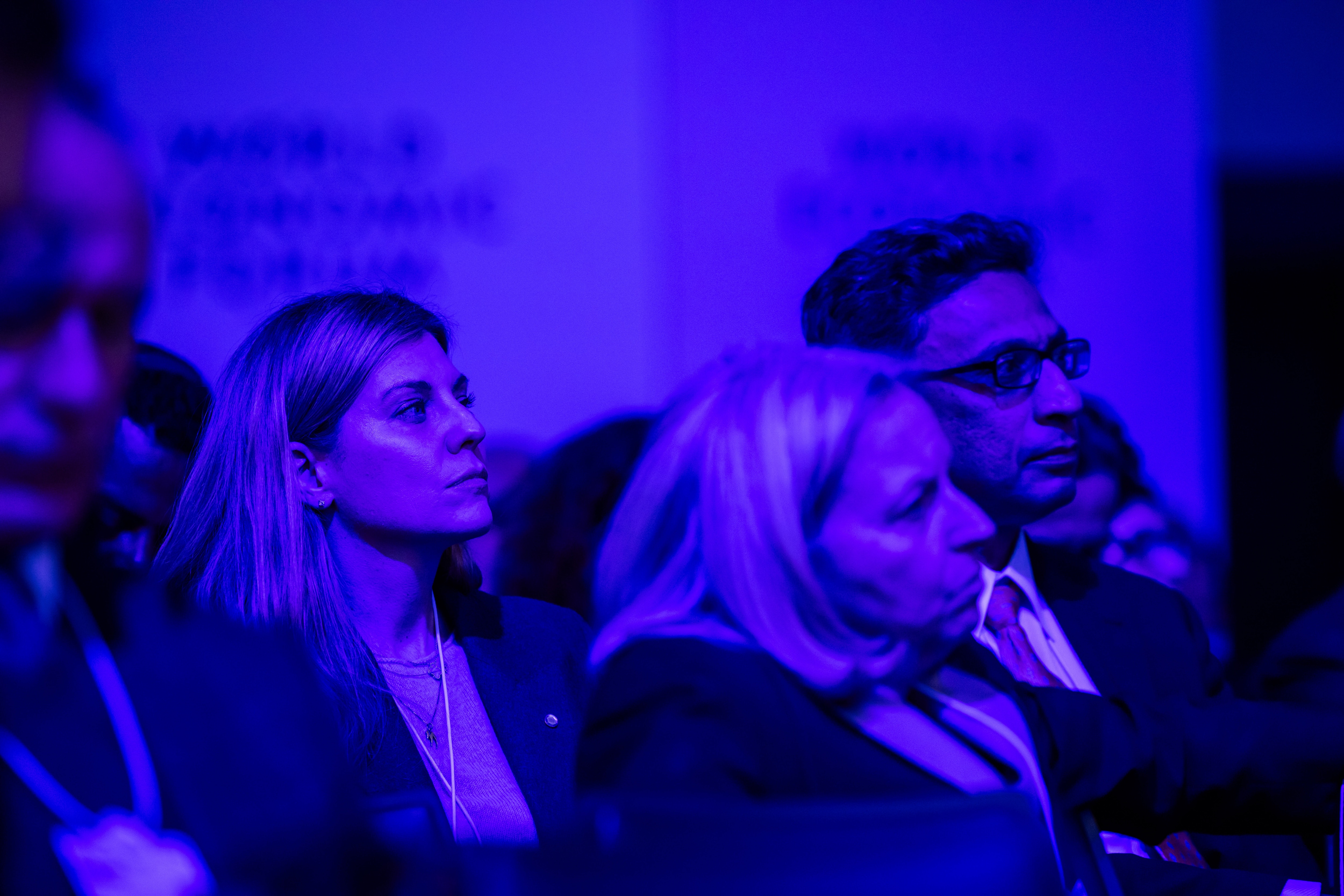Is there a future for globalization? Business leaders discuss at Davos 2022

Will the business rationale for globalization prevail against the growing geopolitical dynamics of fragmentation? Image: Freepik.
- Will the business rationale for integration prevail against the growing geopolitical dynamics of fragmentation?
- Seven industry leaders on what they consider to be the key regional and industry priorities to adapt to changing global forces, and how they see the global order shifting over the next six months.
- A new report from the World Economic Forum, Four Futures for Economic Globalization: Scenarios and Their Implications, aims to kickstart the debate.
The pandemic, the war in Ukraine, rising energy and food prices, supply chain disruptions and the climate crisis are challenges that threaten to destabilize decades of globalization, but there are diverging views on how this will play out.
While globalization has created significant opportunities and lifted millions out of poverty, there has been a rise in distrust of interdependence, with threats like information warfare, cyber warfare and economic war among many, raising the alarm.
Low- and middle-income countries are keen to reap the benefits of being integrated into global markets – international trade is seen as a major avenue for them to recover from current crises given lack of domestic demand. But as companies and governments seek to build resilient supply chains to protect against future shocks we could see increasing domestic and regional manufacturing and sourcing. At a time of hyperconnectivity in the virtual world, the physical world is proving to be less joined up.
The key question will the business rationale for integration prevail against the growing geopolitical dynamics of fragmentation?
A new report from the World Economic Forum, Four Futures for Economic Globalization: Scenarios and Their Implications, aims to kickstart the conversation by providing a simple framework outlining the possible trajectories for the global economy.
A series of sessions at the Annual Meeting will bring leaders together to debate the issue:
- The Future of Globalization, May 23, 09:45 - 10:45 CEST
- Is Globalization Dead? May 25, 10:00 - 10:30 CEST
- Balancing Globalization and Resilience in a Time of Crises, May 25, 13:00 - 14:00 CEST
Ahead of the discussions at Davos 2022, we asked seven industry leaders what they considered to be the key regional and industry priorities to adapt to changing global forces. Plus, how do they see the global order shifting over the next six months?
'Forces driving re-globalization hold more promise than peril for businesses'
Tarek Sultan Al Assa, Vice Chairman, Agility
We’ve entered an era of re-globalization. By that, I mean a more selective, strategic approach to integration by businesses and economies that will reshape global flows of goods, services, finance, data and people. At the moment, the world is fixated on COVID-driven supply chain disruption and riveted by the tragic conflict in Ukraine. But the real drivers of re-globalization were at work before 2020.
One is a new geography of demand fuelled by the spending power of emerging markets’ millennials. Then there are the unfolding energy, mobility and materials revolutions driven by climate concerns and made possible by breakthrough innovations.
In addition, we’re seeing an industrial renaissance defined by digital platforms, AI, IoT, blockchain, automation and other technology that is lowering the cost of production and logistics.
Finally, in geopolitics, you have the increasingly divergent world views of China and the West, which seek to engage with one another on new terms. We should be concerned about ongoing supply chain issues, the Ukraine conflict, and friction with China. But bear in mind that the dynamics of global integration are always changing – a healthy thing – and that most of the forces driving re-globalization hold more promise than peril for businesses and the world.

'Focus on security and creation of alternative financial venues'
Jane Fraser, Chief Executive Officer, Citi
While globalization is changing, it is certainly isn’t ending. The war in Ukraine exacerbated several trends we experienced during the pandemic, most notably disruptions to global supply chains. What is new is the focus on security – from food to energy, from cyber and defence to operational resilience – driving a shift away from any single source of dependency to more localization and greater redundancies. This will add another inflationary pressure to the system.
Another significant outcome of Russia’s invasion of Ukraine is the so-called weaponization of financial services. The West’s concerted and unprecedented use of sanctions to disconnect Russia’s financial system and economy from the West will accelerate the creation of alternate financial venues and the splintering of the existing financial order over time. Simply put, many countries, institutions and individuals will no longer want to put all their financial eggs and assets under a Western system. This is not an overnight phenomenon, and many countries and institutions will operate in both venues, but others may not have a choice.
'Now is the time to strengthen global governance'
Beata Javorcik, Chief Economist, EBRD
Globalization is at crossroads. There is a real danger that geopolitical tensions and the push for the so called “friend-shoring” – doing business with geopolitical allies – will lead to globalization being rolled back. This would undo the achievements of the last 40 years where, thanks to free trade, millions of people in emerging markets have been lifted out of poverty, consumers all over the world enjoyed access to cheaper products, and technology and knowledge could flow freely across international borders boosting global economic growth.
Friend-shoring would without doubt weaken the international trading rules embodied in the World Trade Organization. This would create greater uncertainty. And most importantly, it would also remove the protection smaller economies enjoy thanks to the WTO Dispute Settlement Mechanism against being bullied by their larger trading partners.
In the presence of unprecedented challenges facing the world – from the pandemic to climate change – now is the time to strengthen global governance, not to weaken it!
'The world needs more connections, not less'
Nicolas Aguzin, Executive Director, Chief Executive Officer, Hong Kong Exchanges and Clearing Limited (HKEX)
The world needs more connections, not less and our key priority now is to keep dialogue and connections going. As a super-connector between East and West, our role at HKEX as an exchange is to operate resilient, well-regulated and competitive capital markets, facilitating the two-way flows of capital, ideas and opportunities between different regions, helping to fuel the post pandemic recovery.
The business and economic rationale remains strong: Chinese investors are massively underinvested in global portfolios and the world is significantly underinvested in China. HKEX will continue to play a unique role as a financial super-connector facilitating the two-way flows of capital in the region.
We expect to see continuing stress geopolitically, but we are seeing encouraging signs of progressive partnerships and collaboration in some key areas of the global agenda, most notably on climate change and the fight against COVID-19.
Hong Kong, and HKEX will continue to be very relevant in the year ahead – helping to promote better connectivity and understanding between companies, countries and markets; funding businesses of the future, powering innovation, promoting the sustainable finance ecosystem, creating jobs, and supporting communities that fuel the global recovery.
'The business rationale for integration remains strong'
Eric Parrado, Chief Economist and General Manager of the Research Department, Inter-American Development Bank (IADB)
The perception that the world economy has now entered a phase of de‐globalization has been based in part on the increasing frequency and magnitude of the economic and political shocks to which recently global value chains (GVCs) are being subject to. Just in the last five years, the world has experienced a major trade dispute between the United States and China, a global-scale pandemic caused by COVID-19, the blockage of the Suez Canal, the withdrawal of the United Kingdom from the European Union, and the war of Russia against Ukraine.
Despite these events, the business rationale for integration remains strong. Today’s global value chain structures have taken years to form, with hundreds of billions of dollars in investments and long-lasting relationships with suppliers and clients. Thus, the significant economies of scale associated with modern GVCs could make companies reluctant to dismantle them in the face of severe but temporary shocks. At the same time, GVCs have also shown flexibility, especially in the face of events that are perceived to be more permanent.
Assessing how the global order will evolve in the future in this increasingly uncertain environment constitutes a challenge. However, the priority for Latin American and the Caribbean must be to adapt and achieve greater insertion in GVCs, attracting reallocation of foreign investments and promoting intra-regional trade in intermediate inputs that are used by other firms in the region who export to North America and Europe.
'The next decade will need to foster unprecedented innovation'
Bob Sternfels, Global Managing Partner, McKinsey & Company
“What will follow globalization?” I am humble enough to say that I don’t really know, but it is clear we need a new model that still stresses interconnectedness to solve today’s toughest problems.
Decades ago, going global meant unlocking specialization and scale, developing emerging markets, and the growth of multinational corporations. Global trade grew twice as fast as GDP. But the world today is fragmenting. Multipolarity and the value of resilience are on the rise.
The challenges we need to solve – sustainability, pandemics, inflation, inequality – do not stop at borders. Nor do the ideas required to solve them. The next decade will need to foster unprecedented innovation, empowered by integrated and resilient societies and markets, along with economic equity and partnerships built on trust.
The best thinkers and doers, independent of geography, will need to collaborate for this to happen. If they do, they will unlock economic growth that protects the planet and improves standards of living for all. Helping organizations and societies accelerate this sustainable and inclusive growth is one of McKinsey’s core aspirations.
The path forward is neither easy nor obvious, but given the stakes, it is a journey we must embrace with courage and conviction.
'Without diversity or access to other cultures or markets, businesses lose out'
Jim Hagemann Snabe, Chairman, Siemens AG
The current global geopolitical situation has led some to cast doubt on the success of globalization, and on whether having more interconnected economies is a sensible long-term strategy against the backdrop of present and future armed conflicts and wars.
However, violations of the international order should not incite us to further reverse globalization, but to do quite the opposite. We should strengthen the international mobility of people, ideas, goods, and culture because it has so many great benefits. These benefits include lifting people out of poverty, raising standards of living, sparking intercultural curiosity and driving social progress. Strengthening globalization can be achieved only through collaboration, just as global collaboration is the key to tackling the other major challenges of our times, such as climate change or pandemics like COVID-19.
But there’s even more at stake if we allow the world to become fragmented. What we’ve seen in recent decades of globalization is that the global exchange of ideas and perspectives has led to the advances and innovations that we enjoy today – advances that have created a better and more prosperous world. Without diversity or access to other cultures or markets, businesses lose out on value opportunities. They become weaker and less resilient. And as a consequence we will not be able to innovate the solutions for a sustainable future at the speed we need.
And if there’s anything the past few years have shown, it’s that resilience, adaptability, collaboration, and above all trust, are our most valuable assets. It’s up to the business community, governments, and civil society alike to make sure we grow closer together, not further apart.
License and Republishing
World Economic Forum articles may be republished in accordance with the Creative Commons Attribution-NonCommercial-NoDerivatives 4.0 International Public License, and in accordance with our Terms of Use.
The views expressed in this article are those of the author alone and not the World Economic Forum.
Related topics:
Contents
'Forces driving re-globalization hold more promise than peril for businesses''Focus on security and creation of alternative financial venues''Now is the time to strengthen global governance''The world needs more connections, not less''The business rationale for integration remains strong''The next decade will need to foster unprecedented innovation''Without diversity or access to other cultures or markets, businesses lose out'Forum Stories newsletter
Bringing you weekly curated insights and analysis on the global issues that matter.
More on Forum in FocusSee all
Kaya Bülbül and Kate Whiting
January 30, 2026





